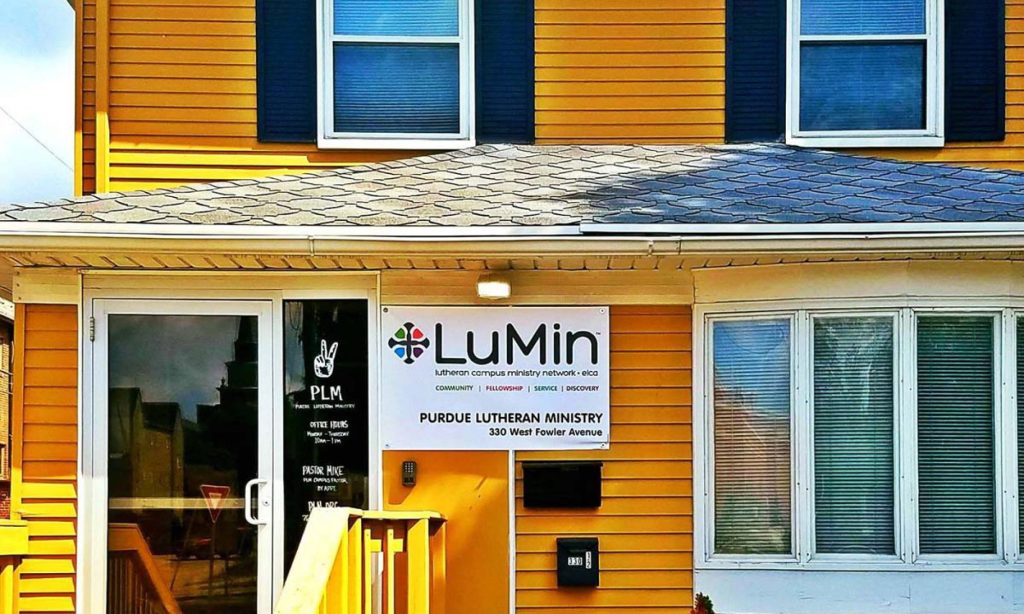by Jacob Sorenson
Sunday school. Summer camp. Campus ministry. The Gathering.
These are the Big 4 Ministries, the ones that have proven most consistently impactful for developing young disciples and nurturing leaders in the ELCA. They are keystone ministries, around which other vital ministry programs flow and flourish.
And yet, all four are vulnerable and even under siege in our church. You have heard the critiques about cost, outdated models and the difficulty of finding volunteers. We are in an age of deconstruction, when people feel justified emphasizing the flaws in systems and ministry models. Innovation is in vogue. So why harken back to these crusty old ministries that both respected experts and trendy influencers have repeatedly excoriated? Because they work.
The Camp and Church Leadership Project
In 2020, our team at Sacred Playgrounds set out to study the summer camp staff experience, thanks to a youth and young adult grant from the ELCA Campaign. We discovered more than we bargained for. Summer camp is part of a complex ecology of faith formation and one of four particularly impactful ministries of the ELCA that we now know as the Big 4.
We started with past camp staff members who were active in Lutheran congregations (half clergy and half lay members). We wanted to find out what role working on camp staff played in their faith formation and call to ministry. The big takeaway: It played a huge role but never on its own. Serving on camp staff was just one element of their complex stories of faith that included a host of other highly impactful ministries. Sometimes, it was the most important element, and sometimes it was less important than other ministries, like campus ministry or Lutheran Volunteer Corps (LVC).
We followed up with a survey of the entire ELCA roster. Thanks to a partnership with the ELCA Office of Research, we received more than 3,000 responses from pastors and deacons, representing all 65 synods. This gave us a representative sample not only to track what ministries these leaders participated in as children, youth and emerging adults but also how important they considered these ministries to their personal faith formation and call to ministry.
Sunday School

The reported impact of Sunday school blew us away. Not only was it the most common ministry experience (94% of rostered ministers attended monthly or more in their kindergarten through fifth grade years), but three-quarters of those who participated said these childhood experiences in the congregation (including Sunday school and VBS) were very or extremely important to their faith formation. They rated it more important to faith formation and call to ministry than youth group, service trips, summer camp and nearly every other ministry we included. In fact, because of its ubiquity, Sunday school was the single most important ministry to the faith formation and call to ministry of ELCA rostered ministers. And this impact carried through generationally. Young ministers in their 20s and 30s were just as likely to emphasize the importance of Sunday school as middle-aged ministers in their 40s and 50s and retired ministers in their 70s and 80s.
So why are we talking about killing Sunday school? We should be investing in this vital ministry with curriculum, training and paid congregational staff. We can experiment with models and work to do things more effectively. We can call it something other than Sunday school, if we find the name off-putting (but please notice that I do not hesitate to use the instantly recognizable name). What we must not do is give up on this ministry. It is worth the effort and frustration because it is absolutely foundational to the other ministries of our church.
Summer Camp

We have all heard the skeptics critique the “camp high” and dismiss camp as theologically shallow or emotionally manipulative. But recent research has consistently and emphatically refuted these assumptions. A growing body of research in both religious and secular camps shows that the overnight summer camp experience has positive impacts on self-confidence, social skills, affinity for nature, empathy, resilience and leadership skills that last months and years after the experience. The Christian camp experience has lasting impacts on engagement with Christian community, spiritual practices and the perceptions of faith’s importance in daily life. About two-thirds of ELCA ministers attended overnight camp as children, and a remarkable 40% served on summer camp staff. While camp attendance proved highly impactful to many of these ministers, serving on camp staff was the experience most consistently rated as highly important to both faith formation and call to ministry.
The Gathering

This was another big surprise to our research team! About a third of all ELCA ministers attended the triennial Gathering (including 43% of those who grew up in the ELCA). Those who attended gave it middling importance, on average, for their faith formation and call to ministry, rating it behind summer camp, youth group and even confirmation. But statistically controlling for other ministry experiences revealed something interesting: Attendance predicted a younger age for ordination. This was regardless of whether or not the person had participated in any of the other ministries we examined. Something about the Gathering had a unique impact on people’s call stories.
This is another oft-critiqued ministry in our church, and it is also the least researched among the Big 4. But it should not surprise us that exposure to the expansive vision of the mission and ministry of the ELCA, which one experiences uniquely at the Gathering, has a direct influence on engagement in and affinity with the ELCA.
Campus Ministry

No surprise here. We know that campus ministry is vital, and we also know that it is chronically underfunded. Less than half of the roster (43%) attended an ELCA college or university. The others attended a mixture of public and private schools not affiliated with the ELCA. At most of these schools, there was a LuMin (or Lutheran Campus Ministry) presence. These ministries, while usually small in numbers, have proven consistently impactful on the participants. Rated in terms of importance on both faith formation and call to ministry, campus ministry was behind only Sunday school, serving on camp staff and the year-long Lutheran service organizations (LVC and YAGM). Like with the Gathering, those who participated in campus ministry (whether with LuMin or at an ELCA school) were rostered at a much younger age, on average, in comparison to those who did not participate or participated less frequently.
An Interdependent Matrix of Ministries
My co-researcher and colleague Rollie Martinson noted that our findings pointed to what he termed “an interdependent matrix of ministries.” They were mutually reinforcing, in that participation in one predicted participation in all of the others. We know, for example, that 88% of Lutheran summer camp staff and 88% of LuMin participants attended Sunday school monthly or more as children. We also know that those who attended the Gathering were more likely to attend summer camp and serve on camp staff. We are sometimes goaded into pitting ministries against one another in a scramble for dwindling resources. The truth is that strengthening one strengthens all the others.
“But wait!” you say. Where are confirmation, service trips and other ministries that we care deeply about? Rest assured, these were included in the survey, and they were vitally important to many respondents. They simply did not have the consistency or unique impacts of the Big 4. By all means, keep doing these ministries. As we consider the realities of dwindling resources and the need to revitalize our congregations and the church, as a whole, we have a roadmap of where to invest.
Just to put the importance of the Big 4 in context, consider this: Among rostered ministers in the ELCA that did ANY ONE of the following—worked on summer camp staff, attended camp four or more times, attended an ELCA college, attended campus ministry monthly or more OR attended the ELCA Gathering—the median age they were rostered was 29. Not all. Any one of these. If none of these was true, the median age they were rostered was 41. If we add seldom or never attending Sunday school to the list, the median age goes up to 43.
I’m sure you’ve noticed that all four of these ministries were on forced hiatus during the COVID-19 pandemic. The Gathering was cancelled. Campus ministries and Sunday school were virtual or non-existent. Most camps were closed for at least one summer. It is no wonder that other ministries are struggling as well. They are all interconnected. These are faith formation opportunities that we cannot get back. But we can reinvest and prioritize these ministries for the sake of the present and future church. This is our roadmap to revitalization.
How do we form the faith of our children and raise up the next generation of leaders in our church? Let’s start with the ministries that have proven most consistently impactful.

Jake Sorenson is the founder and director of Sacred Playgrounds, a ministry offering research and training to camps and their partner ministries. He has a PhD in Practical Theology from Luther Seminary, an MDiv from Princeton Theological Seminary, and more than twenty years of experience in camping ministry and congregational youth ministry. He has authored numerous articles on camping ministry, has taught in colleges and seminaries, has presented at camps and conferences across the country, and is the author of the book Sacred Playgrounds. He lives in rural Wisconsin with his wife Anna (a Lutheran pastor) and their two boys.

Jake, while you summarize great results for what has worked for those of us who are still connected to the church, the question that is not answered in this research is “why have so many checked-out of these ‘vital ministries’?”
I’ve served multiple congregations that have offered robust youth programs, but we still find families disengaging in large numbers. So to your “why kill Sunday School”? question, the answer is “because it’s not working for more than it is working for.” and maybe further “we’re not ‘killing’ it, but we are rethinking our models for it” If I have 18 families disengage from Sunday School and only 10 families engage, pouring more resources into “the way we’ve always done it” isn’t the answer to engaging the 18.
I’m not saying we should give-up on these ministries that have been valuable. But maybe our focus should be on “what do these ministries offer?” (ie relational connection, mountaintop experiences, in depth engagement, opportunities to serve others) rather than the specific events themselves.
LikeLike
Thanks for the comments and question, Eric! Your question about disengagement is an excellent one and something we must continue to address. There has been some great work related to this question by folks at Barna and Fuller, for example.
I know that I am being provocative when I ask, “Why are we talking about killing Sunday school?” But wasn’t provocation the point of naming the initiative that in the first place? I know that the movement itself is more about rethinking the Sunday school model, and I am definitely in favor of considering multiple models, as I say in the article. I agree with you wholeheartedly that we shouldn’t just keep doing the same thing because we’ve always done it that way. What I am saying is that we have some pretty compelling evidence that these ministries, in their various forms, are vital to faith formation in the ELCA. Talking about killing or doing away with any of them is simply not helpful. Revitalization and alternative models? Yes. Killing? No.
I agree with you that a deeper dive into the why of these ministries would be helpful. Rollie and I went into a little more depth in our Word and World article (linked in the above article). My thought is that we start by leaning into what we know works (the Big 4 ministries) and follow your suggestion to get at the why/how. This can help us revitalize the ministries themselves (with new models, for example) and provide new ideas for ministries that can engage people in similar ways. Thanks again for engaging in the conversation!
LikeLike
Given the insights from your article it becomes evident that these 4 ministries indeed play a vital role in shaping the faith and leadership qualities of individuals in the first third. I also believe there is a 5th vital piece that is largely overlooked yet vastly wider reaching and impactful to our communities. ELCA Schools and Learning Centers, with more than 1300 sites reaching nearly 140,000 children, their families and caregivers, up to 5 days a week. With instruction and care being provided from approximately 17,000 teachers and staff.
While the article highlights the significance of Sunday school, summer camp, campus ministry, and The Gathering, there’s an opportunity to extend the impact of these ministries through structured educational programs. ELCA Schools and Learning Centers provide a formalized educational and care in an environment that complements and reinforces the teachings and experiences gained from the existing ministries.
The Camp and Church Leadership Project’s study underscores the importance of these ministries in faith formation and leadership development. By integrating educational institutions into this matrix, the ELCA can offer a comprehensive approach to nurturing disciples and leaders. ELCA Schools and Learning Centers can provide a platform for continuous faith formation and engagement in our congregations and communities.
The disruptions throughout the pandemic emphasize the need for adaptable and resilient approaches to ministry. Educational institutions can leverage technology and innovative teaching methods to ensure continuity in faith formation even during challenging times.
It is time to open our eyes and see beyond these “Big 4” into a future that considers Schools and Learning Centers vital to the roadmap for revitalizing ministry, where the Church can create a holistic and robust framework for the First Third of Life. Can we further enhance the interdependent matrix of ministries, ensuring a more comprehensive and sustained impact on our communities; can we see past our sanctuary doors?
LikeLike
A potential limitation of this research (at least as I am reading this) is that the survey was of ELCA Rostered Ministers. I wonder about the peculiarities of one who follows God’s call to a pastoral vocation and the role the Big 4 play in their faith formation as opposed to someone who pursues a vocation elsewhere. Has there been talk about surveying the general membership of the ELCA similarly?
LikeLike
Here are the findings from a Barna commissioned report that has been shared in a very limited network. I am not sure it will lead to a better understanding and recognition of the impact and value of our ELCA schools and centers but I can hope it provides a framework for opportunity.
https://drive.google.com/file/d/1MZSsU3O6637cebWYCKHAov-T2MT7Bh3f/view
LikeLike
Yes, that is certainly a limitation of the research. We have closely related studies on the participants in both Lutheran campus ministry (in the LuMin network) and those who served on Lutheran summer camp staff. These demonstrate the short term impacts of these ministries. I think it would be valuable to do a similar survey of active members in our ELCA congregations, and we could also get a sense of other leaders in our church by surveying those in the YM network who are not on the roster. Lots of promising possibilities!
LikeLike